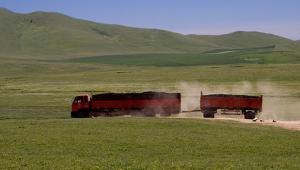In recent years, the World-Heritage listed reef has lost 30% of its coral due to bleaching linked to rising sea temperatures and damage from crown-of-thorns starfish.
The funding will be used to improve water quality, control major predators and expand reef restoration, as well as help farmers near the reef modify their practices.
Environment minister Josh Frydenberg said threats to the reef include “large amounts of sediment, nitrogen and pesticide runoff”, as well as crown-of-thorn starfish species.
He was quoted by the Australian Broadcasting Corporation: “The more we understand about the reef, the better we can protect it. “Millions of dollars will go into science and to better data management and to be able to test the impacts of the reef.”
The reef was listed as a world heritage site in 1981 by the United Nations cultural body Unesco.
The list includes 1,052 sites of environmental and cultural importance. The funding is described by the Australian government as the largest single investment for reef conservation and management in the country’s history.
According to an official government statement, the funding includes:
- AU$201m to further improve water quality with changed farming practices, such as reduced fertiliser use, and adopting new technologies and land management practices.
- AU$100m to harness the best science to implement reef restoration and funding science that supports reef resilience and adaptation.
- AU$58m to expand the fight against the coral-eating crown-of-thorns starfish.
- AU$45m to support other work, particularly increasing community engagement such as Indigenous traditional knowledge for sea country management, coastal clean-up days and awareness raising activities.
- AU$40m to enhance reef health monitoring and reporting to track progress and inform better management.







